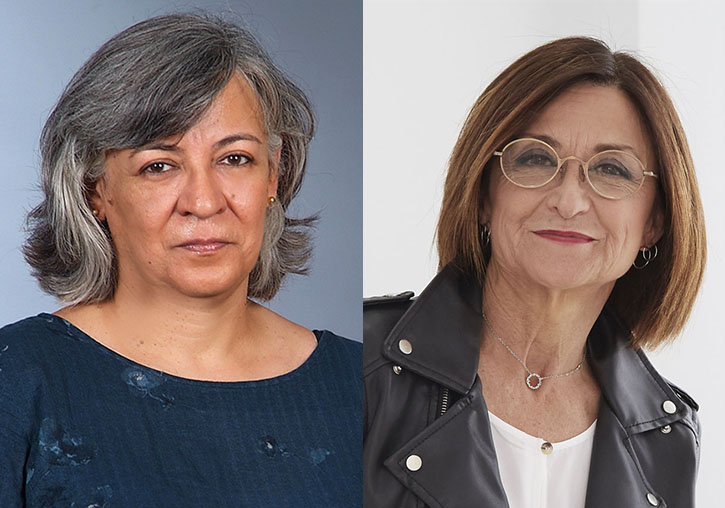Implementing open science requires a common regulatory framework, greater funding and a new evaluation system
- Scientific Culture and Innovation Unit
- October 20th, 2022

A little over twenty years ago, a meeting in Budapest marked the beginning of what is known as open science, a form of research that seeks to make it better, more collaborative and transparent. A study, with Aurora González Teruel and Maria Francisca Abad García, researchers from the University of Valencia, among others, has analysed the main facilitating factors and the barriers perceived at this time to implement open science in Spain. Among other things, open publishing favours the visibility of academic works, although researchers believe that there is a lack of incentives to publish more openly.
The work, in which researchers from the Open University of Catalonia, the University of Barcelona and the University of Navarra also participate, has been published in the magazine Profesional de la Información. In addition, between October 24 and 30, International Open Access Week takes place.
Aurora González Teruel, professor and researcher in the Department of History of Science and Documentation of the Faculty of Medicine of the University of Valencia, and the first signatory of the article, emphasises that: “the values on which open science is based are shared by the actors of the scientific system, but it has also been observed that its full implementation will only arrive if three conditions are met”.
It is a common and harmonised regulatory framework between all institutions with competences in research policy; that this framework is linked to a research evaluation system aligned with these new values and that gives less weight to quantitative criteria and more to scientific integrity and social impact. And, thirdly, González Teruel proposes sufficient funding to support this system, in terms of economic and curricular incentives, and an increase in economic and human resources to implement a research evaluation model that is in line with values of open science, given that the current one is far from being so”.
Maria Francisca Abad García, professor of the Department of History of Science and Documentation, for her part, points out that, although open science is on the political agenda, “there is still a lack of a firm commitment to it. It is true that there are policies and infrastructures that enable open access and the research community is in the process of being provided with technological support for data sharing, but the commitment of the universities is not translated into specific objectives, criteria to monitor them or in incentives for their achievement”.
In addition, this study has shown that the attitude of the main actors in the system, the researchers, is favourable, but that the values of open science can only be adopted if there is an institutional will to change. “The implementation of CA requires increasing the available resources, but also clearly defining how to carry it out. It is to be hoped that the European guidelines and the recent legislative changes in our country will be a decisive impetus”, according to Abad García.
According to Alexandre López Borrull, researcher at the Open University of Catalonia (UOC), “before, open science questions started with a why or a why; now they mainly have to do with how”. The work has gathered the opinions of different actors in the scientific system around several pillars of open science.
Organised through interviews and surveys, the study has gathered the views of researchers, assessment agents, magazine editors, university vice-chancellors and library staff. Works of this type are usually based solely on the opinion of the former and generally only through surveys, but, according to Candela Ollé, researcher at the UOC “a merit of the article is that it takes into account the perspective of five key agents; he goes looking for them and then extracts a global vision with each of the contributions”.
Specifically, and regarding open access to publications and publication in repositories, they are recognised as a positive factor that can increase their impact and visibility. However, there is a lack of institutional promotion or mandatory policies, and curricular and economic incentives are called for to promote them. An illuminating figure for the way to go is that, although the Science Act of 2011 obliges open sharing of documents resulting from publicly funded calls, only 58% of the researches had contributed them two years after the law will enter into force.
Something similar happens regarding the use of open data in research. There is a clear perception of its benefit, but global policies or strategies are lacking. For Ollé, “each university has its own ways of acting and there are many differences between them in terms of structure and commitment”. “We need shared rules of the game, also bearing in mind that the landscape is complex, especially for young researchers”, he says. These researchers, who depend to a large extent on their publications to continue their academic career, express more reluctance when it comes to sharing data that has taken them a lot of work to obtain and that they often want to make profitable in the following years.
Article: Aurora González Teruel; Alexandre López Borrull; Gema Santos Hermosa; Francisca Abad García; Candela Ollé; Rocío Serrano Vicente. «Drivers and barriers in the transition to open science: the perspective of stakeholders in the Spanish scientific community». Profesional de la Información. 2022, maig. DOI: 10.3145/epi.2022.may.05.
Link: https://revista.profesionaldelainformacion.com/index.php/EPI/article/view/86857















